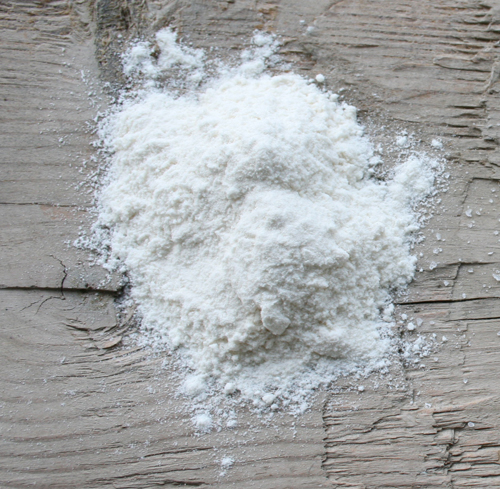Folic Acid in our breads yea or nay? I admit, I’m a little ashamed I paid scant attention to this announcement despite the fact I work in the very industry it s creating waves in, so after @zagundo‘s suggestion that we cover it, I went straight to Michael to get the scoop and his thoughts on the Folic Acid debate. Like many, it was met with mixed reactions, especially on our end, but I suppose what was truly surprising was how the announcement was met with little public remark or debate. Unlike New Zealand s public outcry and eventual deferment of the deal citing mass medication of bread, all seems smooth sailing over on this side of the world with the successful fortification of bread. Granted, the legislation was approved two years ago, but having been put into effect only 2 weeks ago, it s a massive move that affects everyone that consumes bread, or any kind of baked product that uses wheat flour.
We ll get the basics covered first:
What is Folic acid, and why is it important?
Folic acid is the man-made form of Folate, a B Group vitamin needed for healthy growth and development, especially of the nervous system. Folic acid is important to the healthy development and growth of babies during the early stages of pregnancy. Folic acid taken at least 1 month before and 3 months after conception can prevent the occurrence of Nerual Tube Defects (NTDs) such as spina bifada.
What kind of breads will contain Folic Acid?
All breads and baked products made with wheat flour will contain folic acid under mandatory fortification. Only breads made with certified Organic wheat flours are exempt from the folic acid fortification. In fact, it should be stressed that it isn’t the bread, but the Wheat Flour that is fortified with folic acid. That Wheat Flour is then used to make bread, thus producing bread that contains folic acid.
So in terms of Brasserie Bread
Brasserie Bread’s naturally fermented sourdoughs are all made with organic flour, and do not contain folic acid. Our breads that use other flour contain folic acid.
Now that we ve gotten the facts out in the clear, how does Brasserie Bread really feel about the folic acid fortification of flour?
Nay
You, telling me what to eat irks me. There’s so much going on around us that’s out of our control, and now someone wants to waltz in and dictate what I should be eating? No wait, not dictate, more like ok so we injected your food with something we think will help you. Help me how exactly? Don’t I get a say? That irks me. And hey, if I want to question this, oh oops too late, it’s in my food already. On the plus side, I m already 15% along my journey to becoming a better person (as defined by whoever injected my food with that essence of better). A general industry (being comprised of bakers and flour millers) opposition to folic acid fortification of wheat flour stems from the argument that this decision was based on inadequate scientific research. Also raised was the umbrella element: that is, the ignoring of the genetic uniqueness of each individual and the potentially dangerous and uncharted responses to that substance once consumed.
Also, when did the concept of mandatory translate to fact of life ? I guess that irksome feeling is really the uncomfortable thought of living in a world where everything is regulated instead of having the simple freedom to decide for yourself whether you need that extra something . When it comes to health and nutrition, we’re at a stage of unawareness and confusion so widespread it becomes easy to accept what we’ve been given so long as the message bombards us enough.
In addition to that, the mandatory folic acid fortification of wheat flour, especially in breads like ours, threatens the process of artisan baking. As Michael sums up,
“It’s really the simplicity of artisan baking that is compromised.”
Adding a man-made substance into a product that is traditionally defined as natural, wholesome and additive-free defeats its very purpose of existence (and let’s be honest here, its major selling point). What was defined as organic is no longer so with the addition of man-made substances.
Yea
Our daily bread indeed. It is truly astounding as to how the baking industry was chosen as a medium of change, and what a transformative change it is heralding in. Revolutionising the diet of a generation only reveals what an amazing and powerful industry we’re part of. The fact that we’re able to retain our artisan roots, as well as be involved in change on such a widespread scale (that isn’t necessarily a positive thing) also motivates us to really continue with our efforts to increase public and retail awareness of nutritious and healthy eating. Education is all about the openness and accessibility of information – our labels list all the ingredients we use, we welcome feedback from customers who are savvy enough to question everything listed on our labels from organic tags to the style of bread as stated (a French style baguette is VERY different from a Sourdough baguette). If anything, the issue of folic acid fortification in bread will prompt people to question, and keep in check food manufacturers and nutrition information. And by the way, it is mandatory for folic acid to be listed on product nutritional labels as Wheat Flour (Thiamine, Folate).
If my thesis-length ramble is starting to bore you, (it’s certainly making me hungry) then here’s my conclusion: mandatory folic acid fortification of wheat flour isn’t only about splitting the public into the two camps of Organic vs. Non-organic, or even Aussies vs. Kiwis (macho-ness secured: Kiwis uneasy over move to boost Folate levels). Neither is it purely about the evilness of government (or efficiency of its PR machine, kudos to them indeed!).
It’s about being aware of what goes into your food, and using that awareness and knowledge to make an informed decision on what you purchase to put on your dining table for you and your family.
After this thoroughly illuminating discussion with Michael, I turned to the online universe to find out more. Many of the articles I found online covered basic information on folic acid fortification of wheat flour, albeit all on the side of this is good for you, here’s our expert to tell you that it’s good for you multiplied by 10,202,383 times over. If you’re interested to find out more, here are some just to whet your appetite. Or you could always do a Google search on what’s been covered, to decide for yourself if you think this issue deserves a little more remark .
In a sentence, Brasserie Bread believes that folic acid fortification of wheat flour shouldn’t be mandatory – it should be voluntary. Freedom of choice should always be included in matters close to our hearts (and even closer to our bellies).
Metro News
Folic Acid in a loaf near you , September 13 2009, Sydney Morning Herald
New Zealand Folic Acid plan now Toast , 19 August 2009, Hobart Mercury
Trade news
Supplements still necessary , Australian Doctor, 15 July 2009
Industry Bodies
Food Standards Authority Australia New Zealand (FSANZ)
Baking Manufacturers Industry Association of Australia (BMIAA)
Time for lunch! Next time round, we cover iodised salt. shiver
Mei




